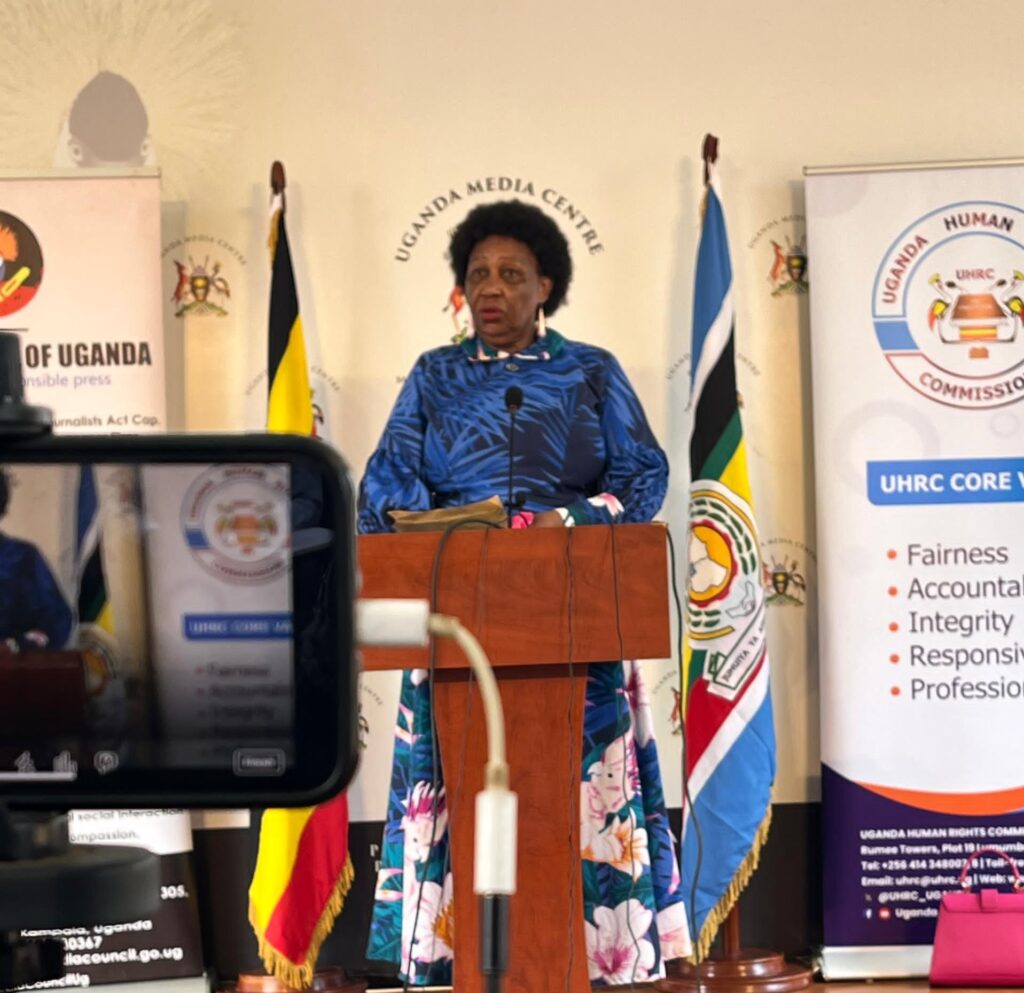Uganda Human Rights Commission (UHRC) Chairperson Mariam Wangadya has issued a stern warning against the growing threats, intimidation, and violence targeting journalists, calling for urgent action to protect press freedom as the country approaches the 2026 general elections. Speaking at the Uganda Media Centre ahead of World Press Freedom Day, Wangadya described the current media environment as “increasingly complex,” with journalists facing harassment, arbitrary arrests, digital intimidation, and even physical assaults-especially during politically sensitive events like elections and demonstrations.
Wangadya condemned the practice of treating journalists as “enemies of the state,” and likened the brutalization of media workers to “beating them like cows,” a reference to the dehumanizing violence some have suffered at the hands of security operatives. She cited recent incidents, such as the Kawempe North by-election, where the UHRC received multiple complaints from journalists about assaults, confiscation of equipment, and verbal abuse by security forces. “Journalists are being squeezed from all corners. You find someone being followed, threatened, or even blackmailed just for writing a story. Are we now saying the truth is a crime in this country?” she asked.

The UHRC boss emphasized that the state has a constitutional duty to guarantee journalists’ safety and ensure a free and secure environment for media practitioners. She warned that without robust protections for the press, credible elections and accountability would be impossible, stating, “Without a free press, forget about credible elections. Forget about accountability. You are simply walking in darkness.” Wangadya called for an end to the targeting of journalists, especially during elections, and urged security agencies to act professionally and respect the dignity of reporters.
As World Press Freedom Day approaches, the UHRC, together with media sector partners, has launched a week-long campaign featuring public dialogues, debates, and training to highlight the essential role of independent journalism in democracy. Wangadya’s message is clear: “Journalism is not a crime, but a service. When you kill the messenger, you blind the entire village.” She called on all stakeholders-state and non-state actors alike-to recommit to defending media freedom and upholding the rights of journalists as Uganda enters a heated political season
























